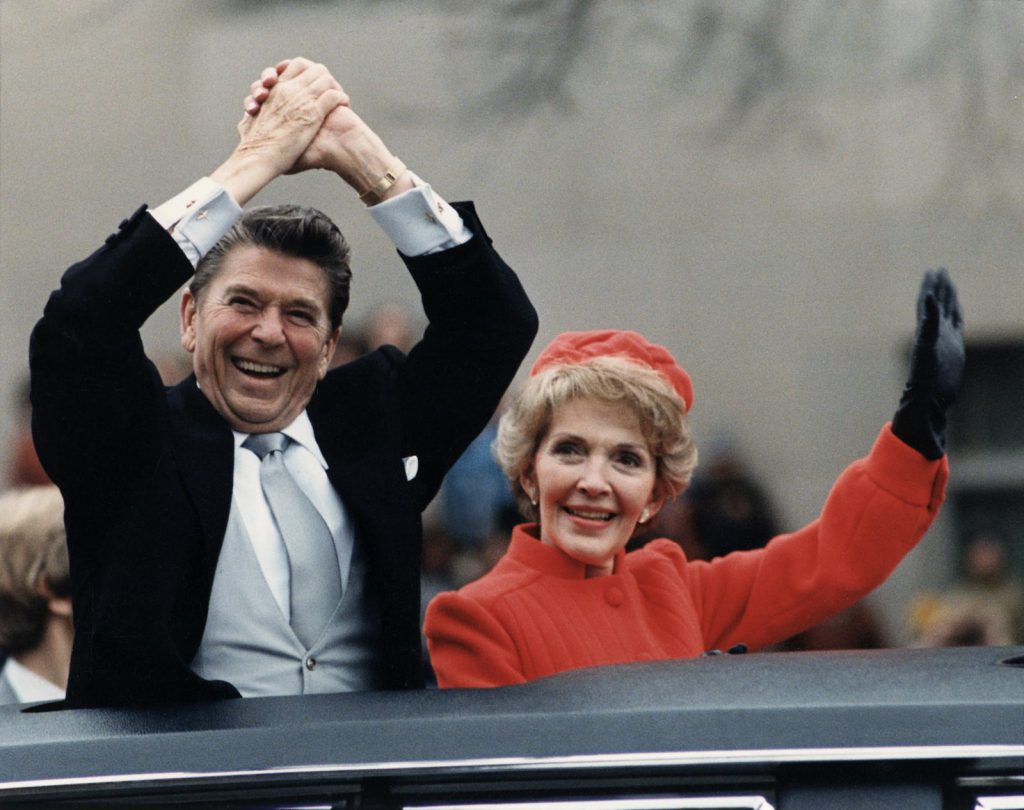
Published February 5, 2017
Monday would have been Ronald Reagan’s 106th birthday. President Trump’s election has caused many observers to bemoan Reagan’s supposedly waning influence on today’s Republican Party. But these people start from the same flawed assumption, that Trump’s election means the United States and Republicans have rejected Reagan’s legacy.
Nothing could be further from the truth. In fact, Trump’s election does not represent the de-Reaganization of the Republican Party; it presents Republicans with their last, best hope to re-Reaganize it.
This flawed common wisdom flows from a flawed understanding of Reagan’s philosophy that accepts the myth that Reagan was an anti-government ideologue. But to paraphrase Reagan himself, it’s not that the common wisdom is wrong, it’s that so much of what it knows just isn’t so.
Reagan’s conservatism was not a more attractive version of Barry Goldwater’s anti-statist ideology. From the moment Reagan started speaking out as a conservative in the late 1950s, he endorsed an active role for government. He believed that government should care for those who could not care for themselves, build public housing for the poor and expand public universities. Where Goldwater attacked Republican President Dwight Eisenhower and Vice President Richard Nixon for supporting Franklin Roosevelt’s New Deal, Reagan enthusiastically backed both men in their presidential campaigns.
Reagan’s conservatism even supported the idea of universal health coverage. He opposed Medicare only because he felt it unnecessary in light of another federal bill, the Kerr-Mills Act. That long-forgotten program gave federal funds to states to construct programs that paid health-care bills for poor seniors. He believed deeply, as he said in 1962, that “any person in the United States who requires medical attention and cannot provide for himself should have it provided for him.”
Reagan did not shrink from endorsing government action when needed as governor or as president. He raised the gas tax in 1983 to fund road construction and repair. He also imposed sanctions on Japanese industries and companies for what he believed were unfair trade practices even as he sought to extend free-trade agreements throughout the world.
Even Reagan’s support for immigration was limited by a belief in protecting U.S. workers. He supported taking in genuine refugees fleeing communism or dictators, but he opposed open borders. He wrote one correspondent in 1981 that he favored immigration quotas because “there is no way that we could, without limit, take all who want to come here simply for the opportunity this country offers.”
Each of these positions has a clear analogue in Trump’s early acts or statements. Trump’s position that everyone should have some sort of health insurance finds its counterpart in Reagan’s long-expressed beliefs. Trump’s belief in building more public infrastructure could be funded by a gas tax hike just like Reagan’s was. His belief that free trade should be fair trade was Reagan’s, and his belief that immigration controls to protect U.S. workers are just also was Reagan’s.
That’s not to say Reagan would have agreed with everything Trump says or does. But the overlap in their views on these issues stems from a broader overlap in philosophy. Trump seems to believe the federal government should act forcefully to protect the interest of the U.S. worker. Reagan’s philosophy was broader and deeper, but it stemmed from the same source: that enhancement of the life, dignity and freedom of the ordinary American was the proper role for the government.
Republicans have too often forgotten this principle in the years since Reagan’s presidency. They have tended to shy away from forceful action to help ordinary Americans in limited circumstances in favor of a more purist free-market ideology that can overlook the genuine suffering markets can create. Too often the person who loses his or her factory job has been treated as collateral damage in the march toward globalization. Reagan never believed government alone or even primarily was the solution, but he also didn’t believe it was never the answer. Republicans have lost that belief, and with it have lost the presidency for most of the post-Reagan era.
It’s no coincidence that Trump’s biggest popular vote gains over prior Republicans came where Reagan also excelled. Throughout the Midwest, the areas where Reagan in 1980 surpassed Gerald Ford in 1976 are usually the same places where Trump overperformed Mitt Romney. Northern and western Wisconsin, the automobile-building and rural regions of Michigan, industrial Ohio and Pennsylvania – many of those who are today’s Trump Democrats were Reagan Democrats first.
A re-Reaganized Republican Party would, like Reagan, meld this belief in limited but forceful government action with the traditional belief in the private sector. Like Reagan, it would reduce burdens on private economic activity while ensuring that the government did not stand idly by when average Americans were hurt. It would finally bring into being that “New Republican Party” Reagan spoke of in 1977, a party that would give “working men and women of this country . . . a say in what goes on in the party.”
That New Republican Party would finally make the GOP something it has not been since before the Great Depression: America’s majority party. And giving birth to that party would be the best birthday present the GOP could possibly give to the Gipper.
Henry Olsen is a senior fellow at the Ethics and Public Policy Center. His book “Ronald Reagan: New Deal Republican” is scheduled to be published in June.








